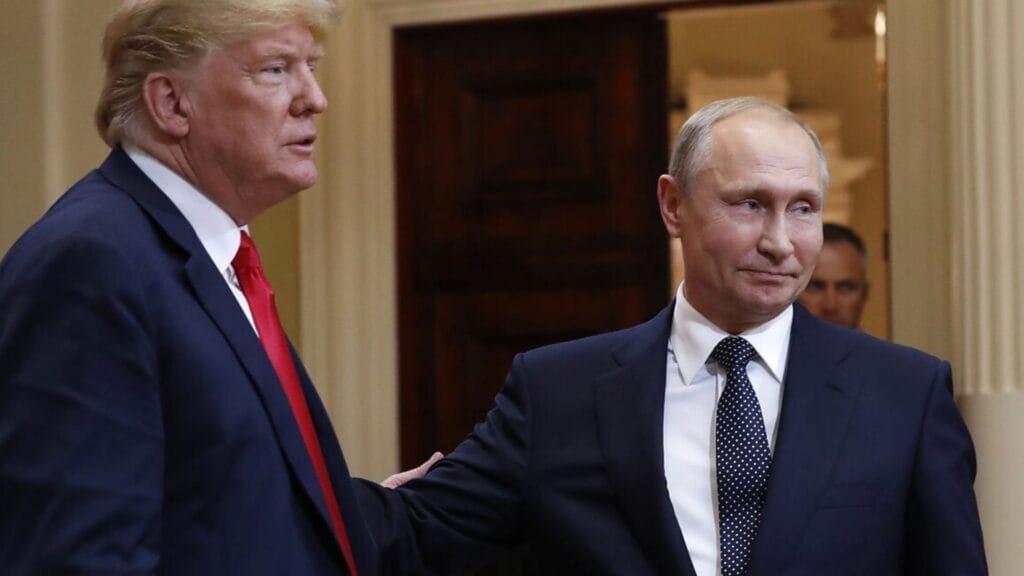The recent rumors surrounding a telephone call between former US President Donald Trump and Russian President Vladimir Putin has brought out the big guns, especially since Russia had dubbed reports of such a conversation as “entirely untrue.” According to The Washington Post, Trump called up Putin to urge him not to escalate the war in Ukraine.

The report also said that Trump was keen on leaving the message across that peace in Europe is a prioritized issue. Kremlin spokesman Dmitry Peskov immediately shot down this story, labeling it “false information” and pure fiction. He described that Trump and Putin have not been in contact with each other. This was a typical case of misleading information that even reputably accredited media outlets broadcast.
This raises an interesting question, Why would someone at all fabricate such a story, especially about something as sensitive as the Ukraine war? At least, it may be even a mistake or part of groups trying to make guesses over what Trump stands on Russia, considering his previous remarks and complicated history with Putin. In person, I guess the whole thing is a bit fuzzy, and if anything, it would not surprise me if miscommunication or assumption generated the report. But journalism and government must be truthful insofar as diplomacy matters.
❗️PUTIN-TRUMP HELD NO CONVERSATION, REPORTS ABOUT IT FALSE – KREMLIN
Earlier in the day, the Washington Post claimed, citing sources, that Trump allegedly had a phone conversation with Putin on November 7.
"This is the most obvious example of the quality of the information that… https://t.co/YsdZIfpwRu pic.twitter.com/x4L532uave
— Sputnik (@SputnikInt) November 11, 2024ALSO READ | Trump and Putin Speak Over Phone on Ukraine as Biden Pushes for Continued U.S. Support
For instance, Trump has said if re-elected he will finish the Russia-Ukraine war within a very short time. Some analysts believe that he would agree to negotiate an outcome where Russia retains some portion of Ukrainian land far-from-peaceful compromise, but Trump says one that would bring peace. Whether this would work is anyone’s guess. As for me, my impression is that while diplomacy is the order of the day, to allow a nation to retain occupied territories makes the wrong statement about aggressive territorial conduct. But what Trump has at times, is a ‘deal-making’ mentality to come up with some non-conventional ideas, as he is known also for coming up with unorthodox ways to throw things out of the status quo.
Again, the article brought to mind the fact that the 70-day period coincides with the number of world leaders Trump has spoken with since his election victory, in which there was the conversation of Ukrainian President Volodymyr Zelenskyy with no other than Tesla’s CEO Elon Musk. Reflecting on who should be included in those epoch-making discussions, one thinks of how strange it may be to connect a business magnate like Musk with a political discussion of this magnitude. Not so up till now, though as business and politics combine in ways that enrich and often cross paths for each other. I think that Musk’s involvement could be useful, especially with his latest suggestions about a peace solution to Ukraine, although at least some of his previous suggestions were unacceptable to Ukraine.
The Telegraph also shed some light on a strategy involved in the Trump’s Ukraine plan, the buffer zone that can safely separate Russian and Ukrainian forces-800 miles, enforced by European troops rather than American troops. Trump’s team claims that Washington would not put its own troops on the ground, leaving this responsibility largely to Europe, Poland, Germany, and France are among European countries that need to take up this mission. This would not only limit participation but would also reduce financial outlays from the U.S. coffers. On one hand, this policy fits entirely with Trump’s long-held view that the U.S. shouldn’t “police the world,” but on the other hand, it may not stand well with allies who want stronger American involvement.
Russia, by contrast, seems guardedly optimistic. Peskov said his side is seeing “positive signals” from Trump’s response to the Ukraine conflict. A “deal” mentality is one area where Trump has often reflected Russia’s preference over traditional U.S. foreign policy fare-mostly belligent military and financial aid for Ukraine. Of course, that was tempered by Peskov with a reminder on how Trump might act after the checks are cashed on Inauguration Day.
Earlier in the year, Putin laid out his exit terms from the war, Ukraine must give up on its NATO ambitions and relinquish territories Moscow claims. Not surprisingly, Zelenskyy would have none of it, maintaining insistence on the territorial integrity of Ukraine. Of course, it is a stiff draw, and one cannot really envision any politician, certainly not Trump, would realistically have looked for peace and lost Ukrainian territory as an acceptable price.
Overall, although Trump’s unorthodox diplomatic approach and deal-making instincts might be an attraction for Russia, the significance of the solution he will bring into this turmoil is fundamentally questionable with respect to fair decision, territorial sovereignty, and stability for a long time. I think if Trump really wants to bring peace, he needs to work towards a middle ground which respects Ukraine’s sovereignty and brings out a feasible resolution. But as things stand, it’s far from clear how any U.S. president can broker a “win-win” solution here, or at least one that Ukraine might accept, and for Ukraine, giving up territory may not be on the table at all.
Minutes by M31GlobalNews






